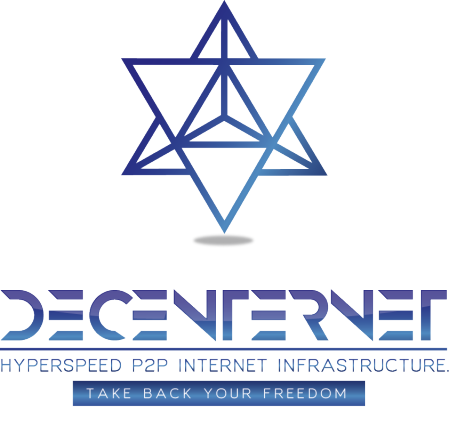With Decenternet, you retain full control of your data
I only recently stumbled on a post about decenternet, and I have to say it peaked my interest. I quickly looked up there website, and as I write, I am still reading, reflecting on, and trying to fully comprehend what this maiden technology is, the architecture, definition and the implications, the prospect behind the vision of the – to quote from its white paper – Decenternet, the most powerful complete hyper-speed P2P distributed Internet infrastructure solution platform that Blockchain technology can create.

Honest to say, this is a still a new technology, and understanding it takes a little more of patience before one can draw informed conclusions regarding the value its future is set to unleash for eventual developers, users, contributors, donors and consumers.
That said, it will take me a while to fully comprehend it, but rest assured I am munching at every kind of information and resource I can get my eyes and hands on. Even so, while reading through Decenternet’s white paper, I couldn’t help but notice how it is being structured as an infrastructure to resolve what remains the most fundamental Achilles heel of the classical internet industry - abuse of user data.
The recent Facebook – Cambridge Analytica debacle is a classic example of privacy abuse that characterizes the current internet industry as know it, but which Decenternet looks to resolve.
What is the current situation? Well, as it is, internet infrastructure apps are given unauthorized access to personal information about users such as religion, political views, relationship status, user’s education levels, and history, book preferences, music and movies.
Once this information is collected, individuals, organizations or governments can use this information to monitor, to study, to manipulate you! That is exactly what happened In the Facebook - Cambridge Analytica debacle in which Facebook profiles of users were without consent retrieved and used for data analysis by Cambridge Analytica
The political leaning, UK-based political consultancy was able to buy data on 50 million Facebook users in 2015. The data, which it would later use for micro-targeted political advertising, had been gathered via a third party survey app running on Facebook’s platform and which used its API to further pull data on the friends of the first 270,000 respondents who answered the survey.
With Decenternet however, such a scenario is impossible. To directly quote from their white paper:-
The Decenternet ensures that the people become the true owner of data and only allow hosting of applications that fulfill this criterion.
As such, you would personally have to provide information otherwise currently retrieved without your consent.
Again, let us read from the Facebook debacle. Shortly after the controversy arose, Facebook moved to quell fears, implementing several changes in a bid to improve the security of user data.
With the internet at current status, this is a welcome move for Facebook users, however this is only a control rather than curative measure. And it is not what we need. ‘Facebook’ as the middle man controls the environment of the internet, including the quality and accessibility of data.
Simply put, they decide how and when to use your data. So in a sense, Facebook as a central authority, retains the right as a middle man to censor your data, to limit your self-expression, to direct your public reach, and if it so wishes, to collude with government to their purport.
And that is the problem that decenternet resolves. First, decenternet does not belong or report to any third-party organization except to its users, a fundamental factor in eliminating the middle man from controlling the internet environment, including the quality and reach of data, and the extent or manner of your expression.
As noted at the beginning, understanding Decenternet will take a little more of patience before we can finally draw the necessary and informed conclusions regarding the value its future is set to unleash for eventual developers, users, contributors, donors and consumers.
So for now, I don’t want to unleash unnecessary patriotic bombast or to jump to premature critique conclusions. I invite you to read more about this, and let us share what could be the future of internet.
Meanwhile, these are only my thoughts in as far as i so far understand. I encourage you to do your own research on Decenternet. Here are some useful links
- Check out Decenternet’s website
- Follow the Decenternet Facebook page
- Follow Decenternet on Twitter
- Join the Decenternet Telegram group
Much Love. Larmbert


